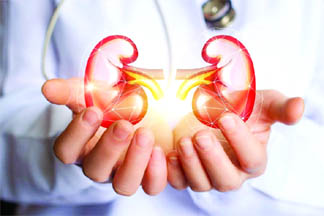
Maintaining kidney health involves a balanced diet that supports overall well-being while managing specific dietary restrictions. A kidney-friendly diet typically emphasizes low-sodium, low-fat foods and includes plenty of fruits, vegetables, whole grains, and lean proteins. Limiting phosphorus, potassium, and protein intake may also be necessary, depending on individual needs.
Dr Roshan Kore, Consulting Dietician, NHSRCC Children’s Hospital, says, “A balanced diet rich in whole grains, lean proteins, fruits, and vegetables is essential for maintaining kidney health. Limiting sodium, phosphorus, and potassium intake is crucial, as these can exacerbate kidney diseases. Incorporating foods like leafy greens, berries, fish, and low-fat dairy can provide essential nutrients while supporting kidney function.”
One must adopt a balanced diet to prevent kidney diseases. “Emphasizing low-sodium, low-fat, and low-cholesterol foods is crucial. Opting for fresh fruits and vegetables, whole grains, lean proteins like fish and poultry, and healthy fats such as those found in nuts and olive oil can promote kidney health. Incorporating foods rich in antioxidants like berries and leafy greens helps protect against oxidative stress,” shares Dr Suparna Mukherjee, Charge, of Clinical Nutrition, Narayana Health City, Bangalore.
Hydration is also key; adequate water intake helps flush out toxins and prevents kidney stones. “Avoiding processed foods, sugary drinks, and excessive alcohol consumption can further safeguard against kidney damage. Remember, a mindful approach to nutrition not only supports overall health but also plays a pivotal role in preventing and managing kidney diseases,” adds Dr Kore.
Additionally, limiting processed foods, sugary beverages, and excessive protein intake can reduce the risk of kidney damage. “Remember, a wholesome diet is not only vital for overall health but also plays a pivotal role in safeguarding our kidneys for the long term,” signs off Dr Mukherjee. Source: News18




Be the first to comment